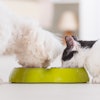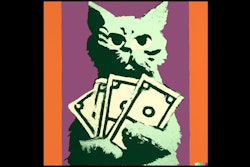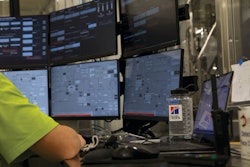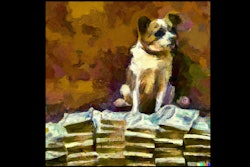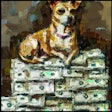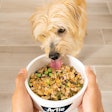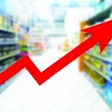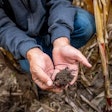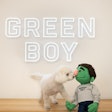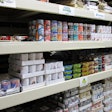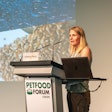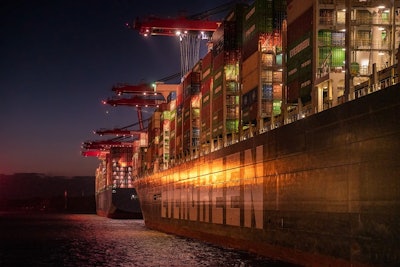
Russia has suspended pet food imports from numerous European pet food factories in a recent row of measures officially aimed at protecting pets from potentially harmful products. The step could add tensions to the already strained supply in certain product categories, according to market players.
On January 31, Rosselhoznadzor temporarily restricted pet food imports from French UNITED PETFOOD FRANCE-UPF, ATM PETFOOD and La Normandise. The same measure has been taken in Italy against United Petfood Italia Spa, Hill's Pet Nutrition Manufacturing, Adragna Alimenti Zootecnici Srl and Nestle Italiana SPA.
The decision was made based on the results of a routine inspection in November 2023, which revealed systemic violations of production standards at these facilities, the regulator explained.
In addition, the Russian veterinary body banned imports from Serbian factory Farminа Pet Foods over a repeated discovery of arsenic in the imported product batches.
Before the restrictions, Hill's and Farmina together accounted for 12.5% of the Russian pet food imports. The loss of Hills products could be particularly painful for Russian pet owners since Hills covered nearly a third of the demand on the therapeutic pet food market, local news outlet BFM reported, citing the Russian Union of Zoo Business Enterprises.
Gradual barring of European and American pet food
The new restrictions are a part of the long-term trend that commenced in 2021 when Rosselhoznadzor rolled out laboratory inspections of imported pet food, recalled Tatyana Kolchanova, general director of the Zoo Business Union.
The change in the regulatory practices has led to the gradual barring of European and American pet food factories for various reasons, from identifying GMOs in delivered products to differences between the declared and actual product content, Kolchanova said.
"Generally, this is not a very good story since dietary pet food designed to affect certain body functions was almost 100% imported," Kolchanova added. "And, frankly speaking, these import bans do not seem very right because these pet foods were imported for decades, which side effects were never identified."
Yulia Dolzhenkova, development director of Zooinform, a Moscow-based pet industry media, said restrictions of pet food imports have a detrimental impact on the Russian pet food market. "The Russian industry has yet to offer viable alternatives to imported products," Yulia Dolzhenkova noted.
With these actions, Russian pet food imports keep shrinking. In 2023, around 72,400 tonnes of foreign pet food landed in the country's market, down 31% compared with the previous year, local news outlet Fontanka reported.
Despite opportunity, Russia lacks a quality alternative
A source in the Russian pet food industry who wished to remain anonymous told the publication that nearly 100% of the demand in the economy segment of the Russian market is met by local factories, primarily those of Mars and Nestle. All imported pet food belongs to the premium segment.
In 2023, sales on the Russian pet food market totaled Rub₽433 billion (Eur€4.7 billion) against Rub₽380 billion (Eur€5.2 billion based on the 2022 exchange rate) in the previous year with a 14% growth, estimated Zooinform, a Moscow-based pet food media.
Inflation and an upward price rally on the pet food market were the main factors contributing to the growth, noted Yulia Dolzhenkova, referring to a Nielsen's study. According to the report, sale volumes in the cat food segment witnessed a 2.5% rise in sales, while dog food sales stagnated in 2023.
Russian veterinary officials emphasized the Russian pet food industry has a chance to benefit from the imposed restrictions. Yulia Dolzhenkova agreed that the new status quo on the market gave Russian businesses a powerful impetus to expand domestic pet food production. Construction of new pet food factories has been kicked off, and capacity growth is expected to pick up the pace in the future.
This is not enough, however, to fill all the gaps in the market. "There is a lack of R&D and a shortage of qualified personnel who know what is required to manufacture high-quality products," said Yulia Dolzhenkova. "For many years, we relied on imports, and we are simply not ready yet to get the products of the same quality we used to get from Europe."
A lack of raw materials and certain vital ingredients are more factors hindering Russian import-replacement push, especially in the specialized pet food segment. Russian raw material supplies have yet to catch up with foreign firms in terms of product quality, Yulia Dolzhenkova admitted.
"Holistic and therapeutic pet food can't be manufactured at all in this stage in Russia due to an absence of the critically important raw materials," Yulia Dolzhenkova said.
In the wake of the restrictions, the prices of warehouse stocks of Hill's pet food surged by nearly 75% as customers rushed to lay their hands on the last available products. The panic buying happens in the background of discussions of an appeal by social activists who demanded the Russian General Prosecution Office withdraw stocks of banned imported pet food from the retail sale.
Russian pet parents would love to switch to domestically-made pet food. There are a number of decent options, but in general they are not happy with the quality stability of those products nor the price, which they expect to be lower than imported pet food, Yulia Dolzhenkova admitted.
